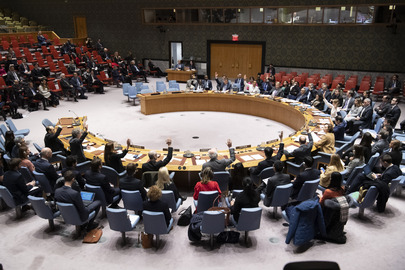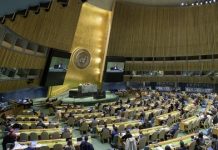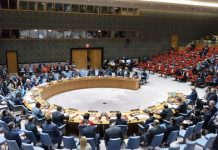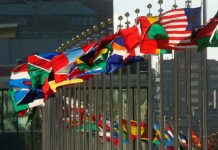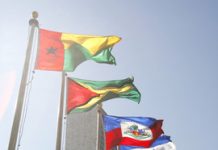A team from the Independent International Commission of Inquiry (CoI) on Syria visited former prisons and detention centres, including the notorious Sednaya and the Military Intelligence Branch 235 prisons.
It is the first time the team has been able to access Syria, as the former regime denied all previous requests to gather evidence.
The team was dismayed to see that much evidence and documentation had been damaged, taken or destroyed – information which in some cases could have helped families trace disappeared loved ones.
“Utmost care must be taken to protect mass grave sites and to safeguard all documents and evidence across Syria,” it said, warning that well-meaning but premature actions by individuals or organizations could hinder long-term forensic efforts.
Urgent recommendations
The Commission are recommending the setting up of a a specialized unit to coordinate the protection and preservation of mass grave sites and related documents, until forensic experts can assess them.
The independent rights experts call on authorities to discourage any interference and for any documents already removed to be returned. Many national and international rights bodies and organizations have offered assistance to secure evidence and support the families of missing persons.
“This critical juncture in Syria’s history, and at a time of great expectations by the Syrian people, the Commission reiterate its full solidarity with the entire Syrian people and stands ready to support in any capacity it can,” it stated.
Established by the UN Human Rights Council in 2011, the Independent International Commission of Inquiry is mandated to investigate all alleged violations of international human rights law since March 2011 in Syria.
Rights experts call for inclusive reconstruction
Separately, a group of over 30 independent human rights experts – including Special Rapporteurs – stressed the need for unified international support to ensure Syria’s transition is grounded in democratic principles and human rights.
They emphasised that justice, reconciliation, and respect for Syria’s sovereignty are paramount to the country’s recovery following the fall of the Assad regime.
The experts highlighted the importance of addressing the rights of marginalized groups, including women, children, minorities, and displaced persons, while ensuring the political process remains Syrian-led and Syrian-owned.
‘Credible’ system
“Justice should be pursued for all crimes committed, regardless of the perpetrator, through a credible judicial system focused on accountability, reparations, reconciliation and not revenge,” the experts stated.
“It is vital that such processes conform fully with international human rights standards…The involvement of civil society and human rights defenders in a just transition is crucially important for the process to be credible,” they added.
Cooperation, not aggression
The experts urged the international community to support Syria’s rebuilding while ensuring the process remains free from foreign interference or aggression, warning that the country has endured major foreign interventions, transforming the country into the site of an extensive and protracted proxy war.
Continuing military interventions, such as the recent unprovoked and illegal attacks by Israel – its occupation of more Syrian territory in the Golan Heights and other air-attacks and incursions into north-east and central Syria – are grave obstacles to effective rehabilitation.
“All foreign occupying military forces should leave Syria, and all territorial incursions and attacks should cease without delay,” the experts stated.
Independent experts
The experts included several Special Rapporteurs and Working Groups on key rights issues, who are appointed and mandated by the Geneva-based Human Rights Council.
They are not UN staff, do not draw a salary, and serve in their individual capacity, independent of the UN Secretariat.
Source of original article: United Nations (news.un.org). Photo credit: UN. The content of this article does not necessarily reflect the views or opinion of Global Diaspora News (www.globaldiasporanews.net).
To submit your press release: (https://www.globaldiasporanews.com/pr).
To advertise on Global Diaspora News: (www.globaldiasporanews.com/ads).
Sign up to Global Diaspora News newsletter (https://www.globaldiasporanews.com/newsletter/) to start receiving updates and opportunities directly in your email inbox for free.


